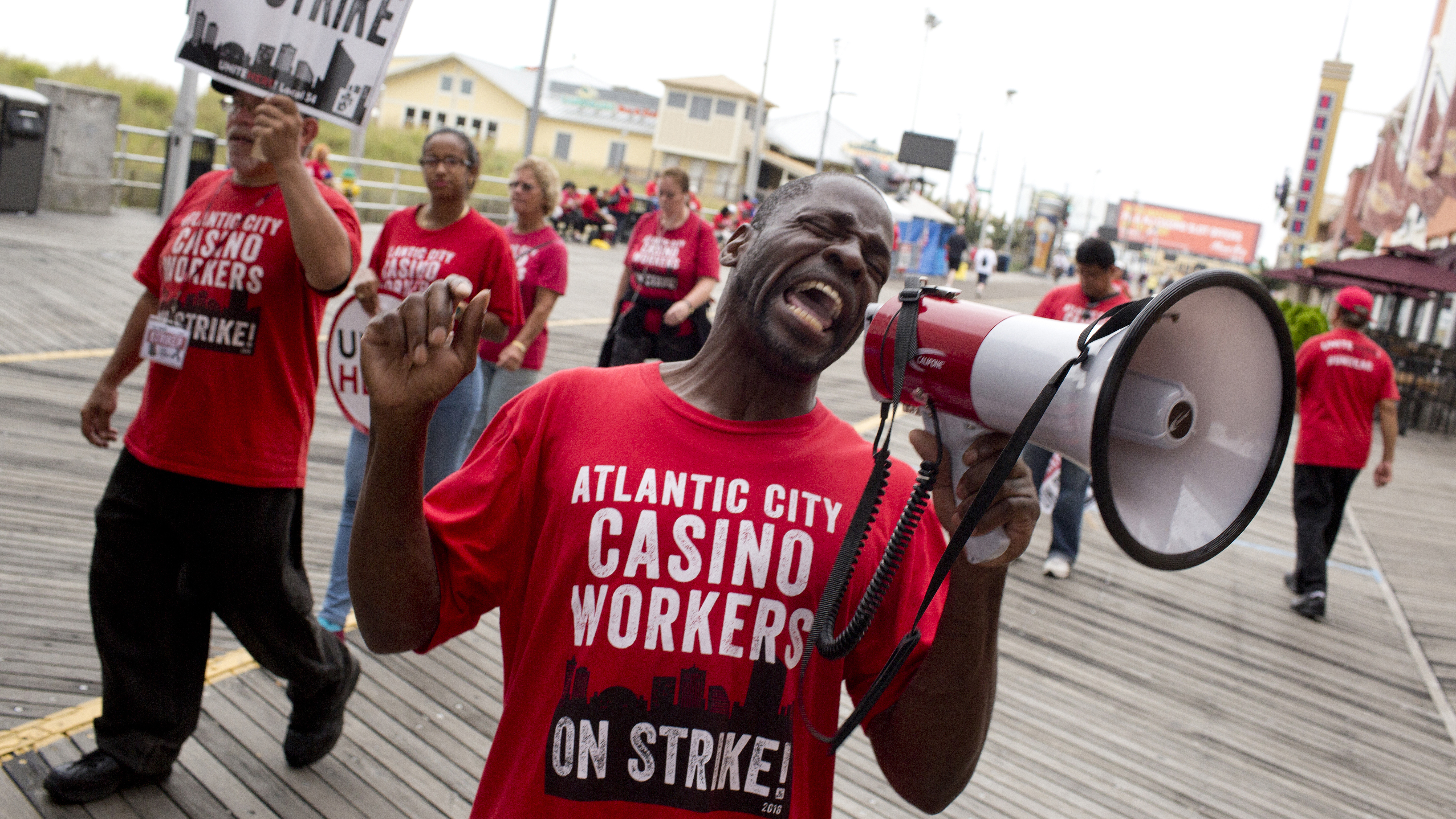“This summer my car finally died,” says Andrew Lichtenstein. “Needing a new one, I flew to Miami to pick up my sister-in-law’s used car and drive it back home to Brooklyn.” Lichtenstein is referring to an old, white 2001 Toyota Corolla, and his path was as follows: Miami, Florida, to Orlando to Gainesville to Jacksonville to Florence, South Carolina, to rural North Carolina to Norfolk, Virginia, to Richmond to Boonsboro, Maryland, to Baltimore, Maryland, to Atlantic City, New Jersey, to New York City. He spent ten days total on the road and always stayed with friends except for one night, when he stayed in a motel. On the eve of America’s presidential election, he stopped to interview people—“friends and strangers alike”—whom he met along the way about their political beliefs and preferences. Ultimately, he says, “many people feel that who they’re specifically voting for on election day is a private decision; it seemed almost impolite to ask.” Some told him anyway.
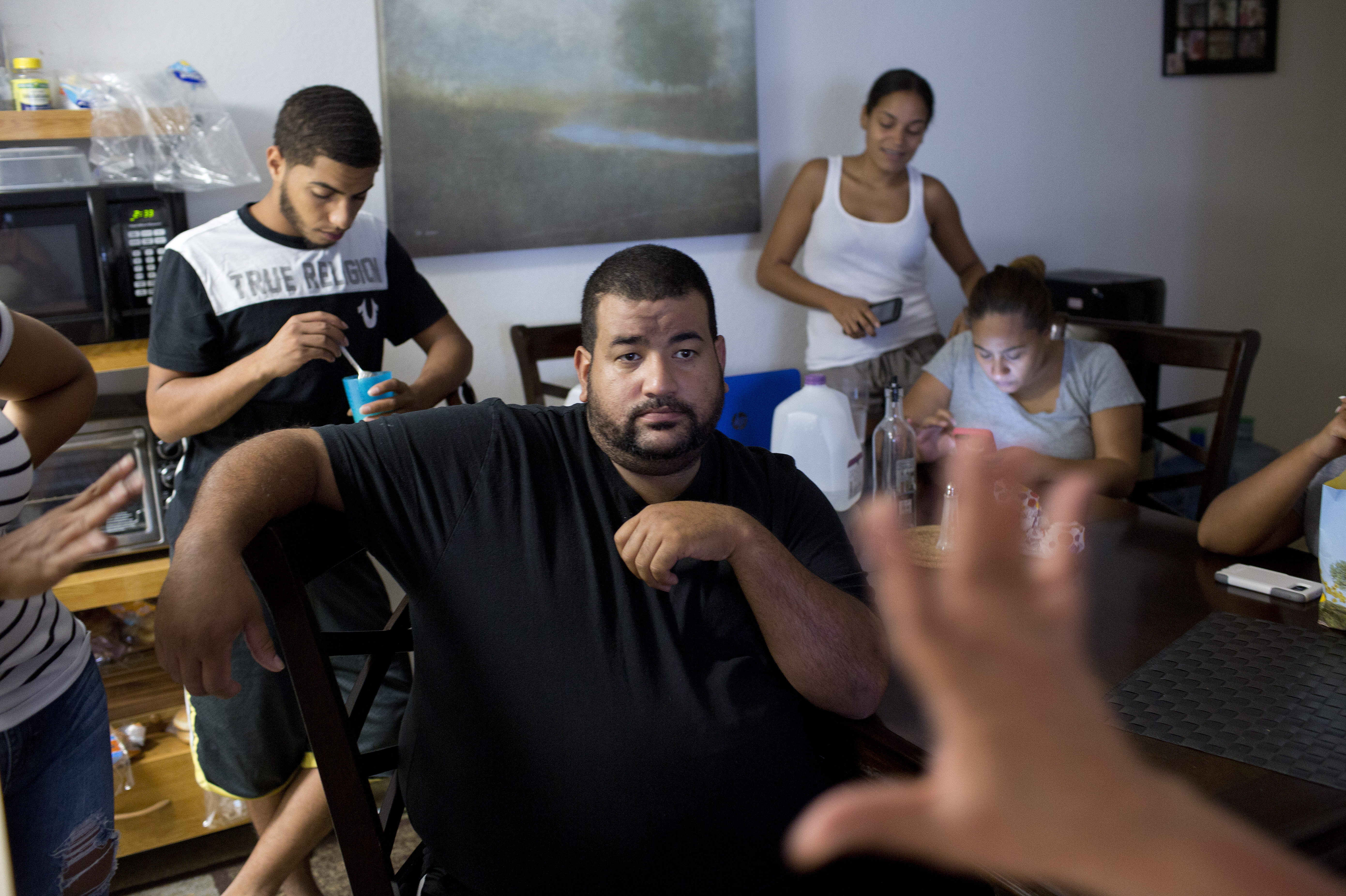
Juan Ortiz has moved with his large family to a subdivision outside of Orlando, Florida. They all grew up in Bushwick, Brooklyn, but had to leave when they could no longer afford the rising rents in the neighborhood and across New York City. When asked about the upcoming election, he said:“Some of what Trump says makes sense. A lot of foreigners are taking the jobs that we desperately need. I’m a trucker and a travel the whole state, talking to people. A lot of them say they are voting for Trump just because they can’t vote for her. I don’t know, I just can’t bring myself to do it. I wish we could just start all over, hold another election again, and pick other people.”
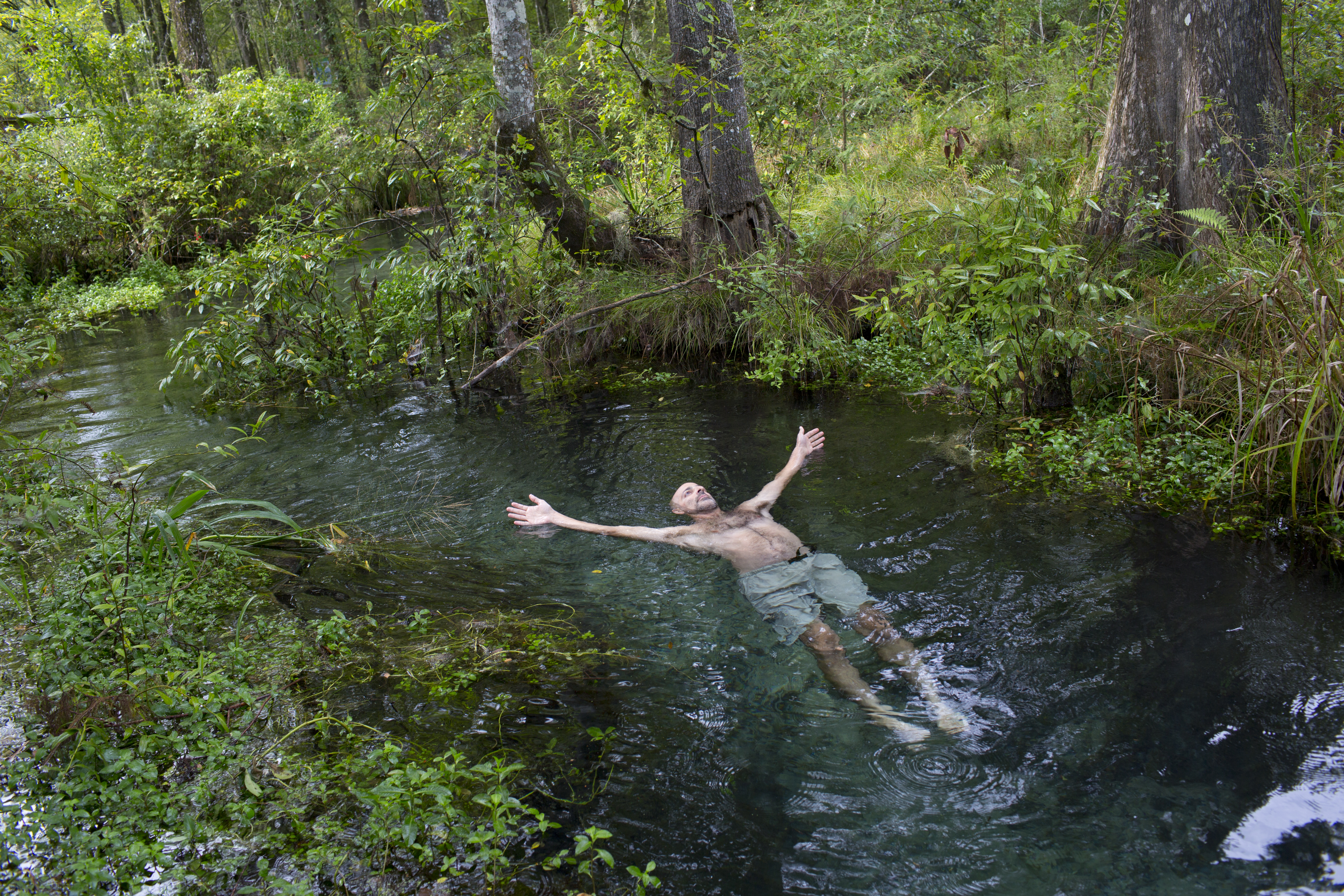
Kayvon Bahramian is an Iranian American urban organic farmer who grows free food for the homeless on a community farm in the historic Porters neighborhood of Gainesville, Florida. When asked about the upcoming elections, he said: “I feel this election is more about not voting for someone than being excited about our presidential options. People probably feel that way on both sides. I could never bring myself to vote for Trump, but I do understand the desire to send a message, to shake up the establishment.”
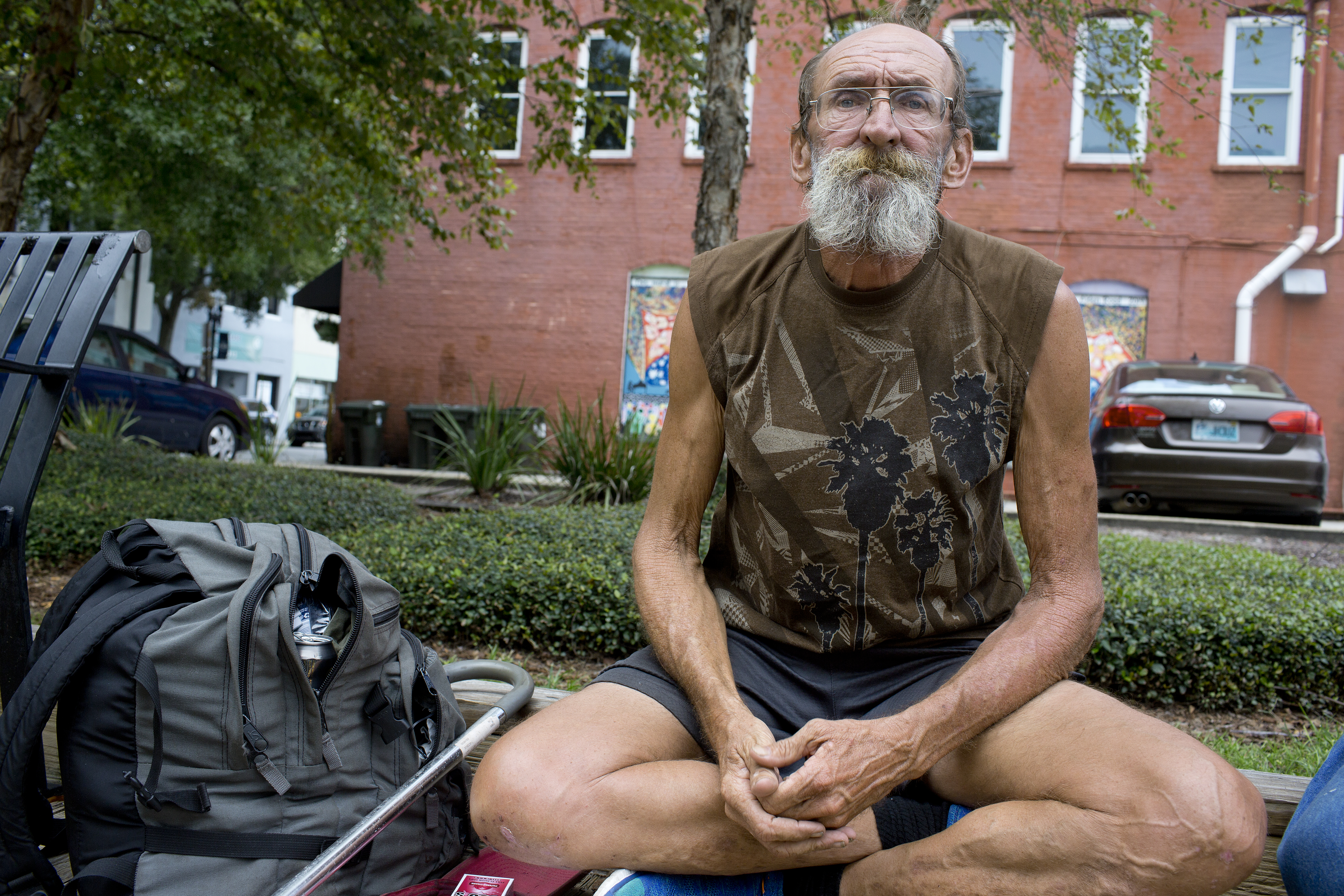
Rodney “Big Bird” York has lived on the streets of Jacksonville, Florida, a city with a large homeless population, for fourteen years. When asked about the election, Rodney said: “I’m sixty years old and I have lived through it all—Vietnam, Woodstock. Out here on these streets, I’ve been shot twice and stabbed twice. I remember when it was a white water fountain and a black water fountain, and you know, it’s about to happen again. I’m voting for Hillary.”
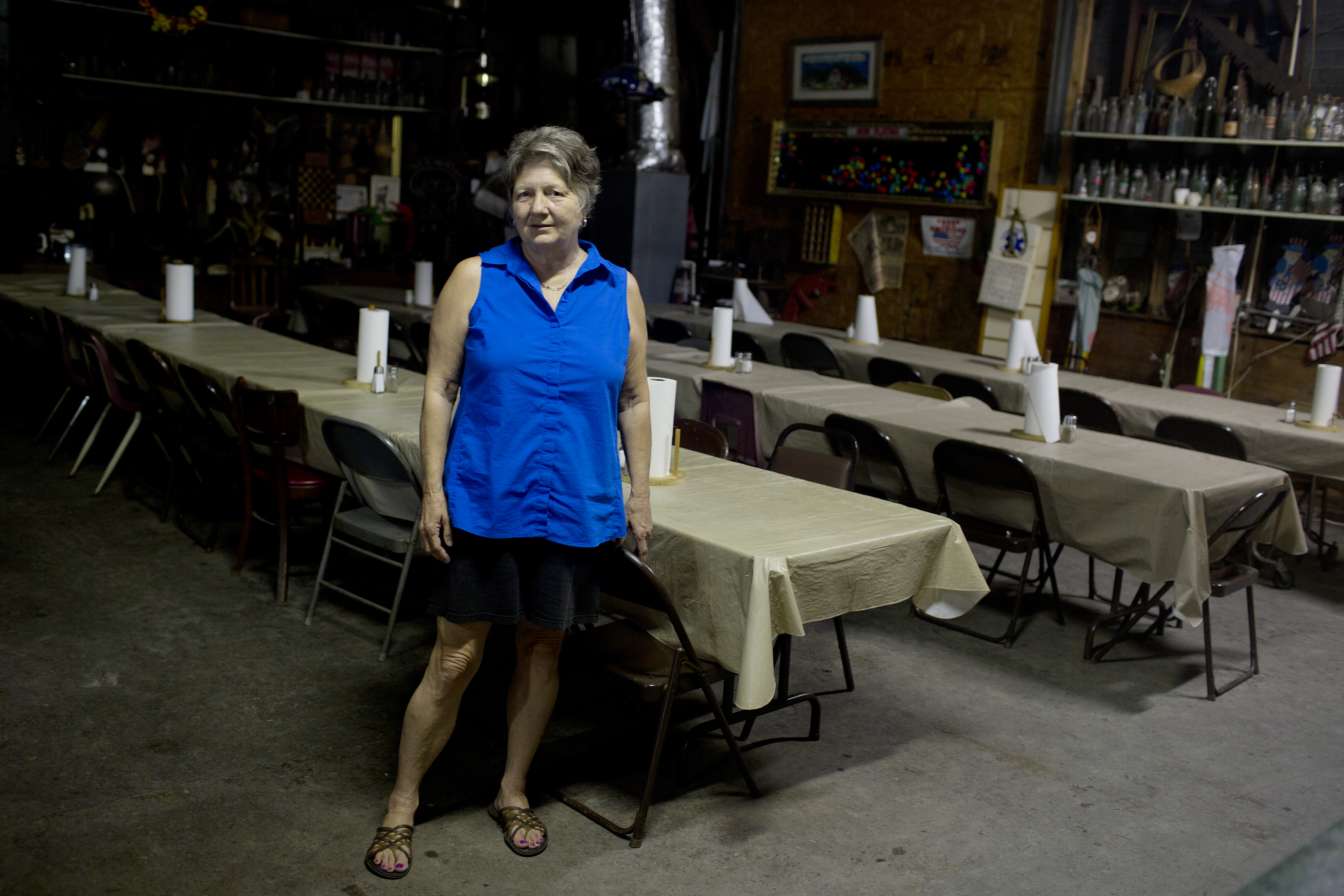
Estelle Rouseneau is a manager at Harold’s Country Club, a local bait shop, gas station, and bar in Yemassee, South Carolina. “I’m a Republican,” she said. “I wish someone else had gotten in, but I’m still voting for Trump. We have no choice. Trump will put an end to all of this political bullshit. It’s the politicians, the lobbyists, that have made things the way they are. Healthcare, the cost of medicine, having to work two jobs—it’s a wreck. Waste, fraud, and abuse—that is what this country has become all about. Still, I believe Hillary will win. People are afraid of Trump. I’m not.”
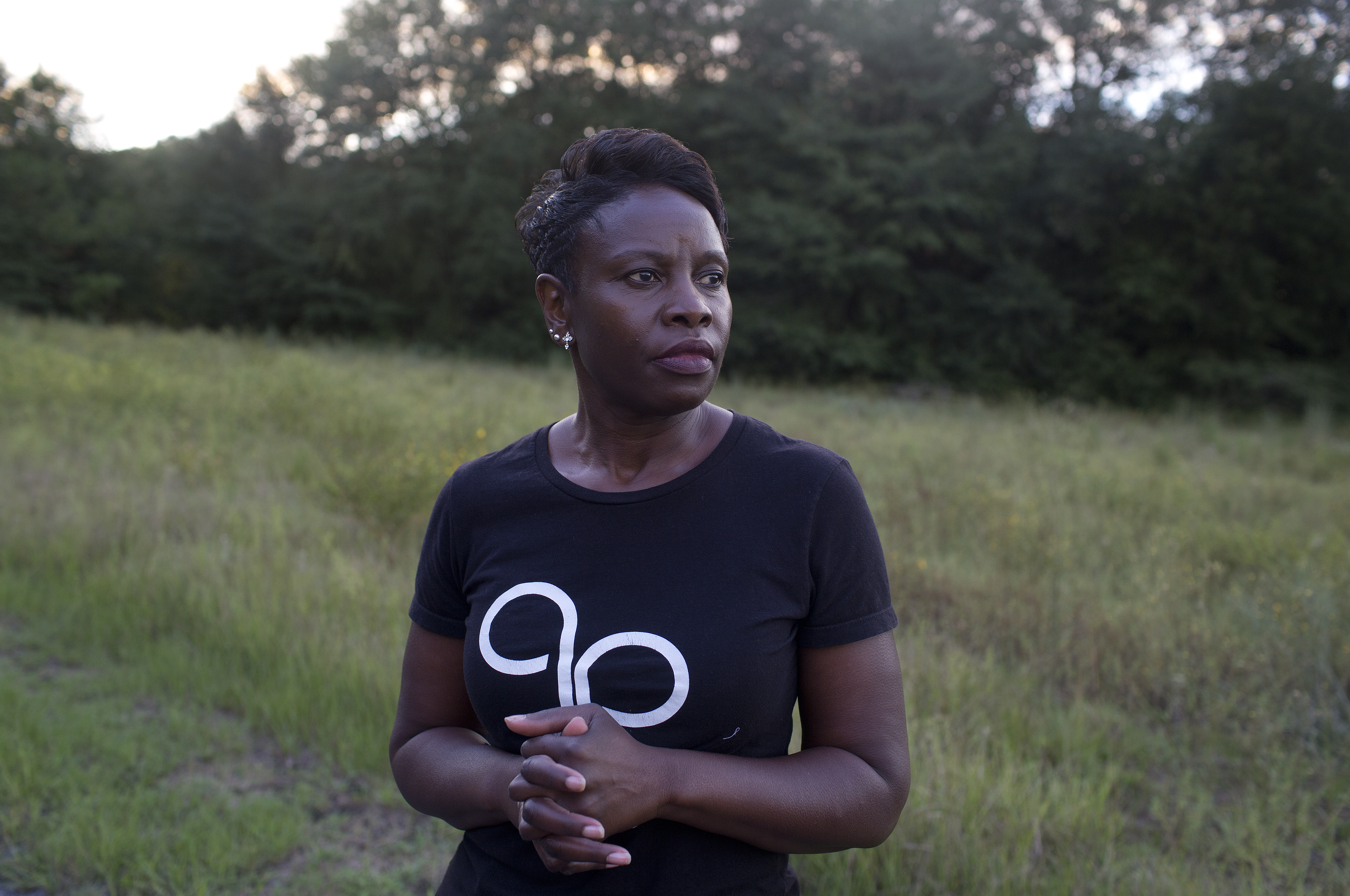
Deborah Baccus is a surgical assistant from Florence, South Carolina, who can trace her family back to the state’s founding. When I asked her about the upcoming election, she was quick to reply. “Oh no, I’m not talking about that,” she said. “I’m just going to pray—and vote.”
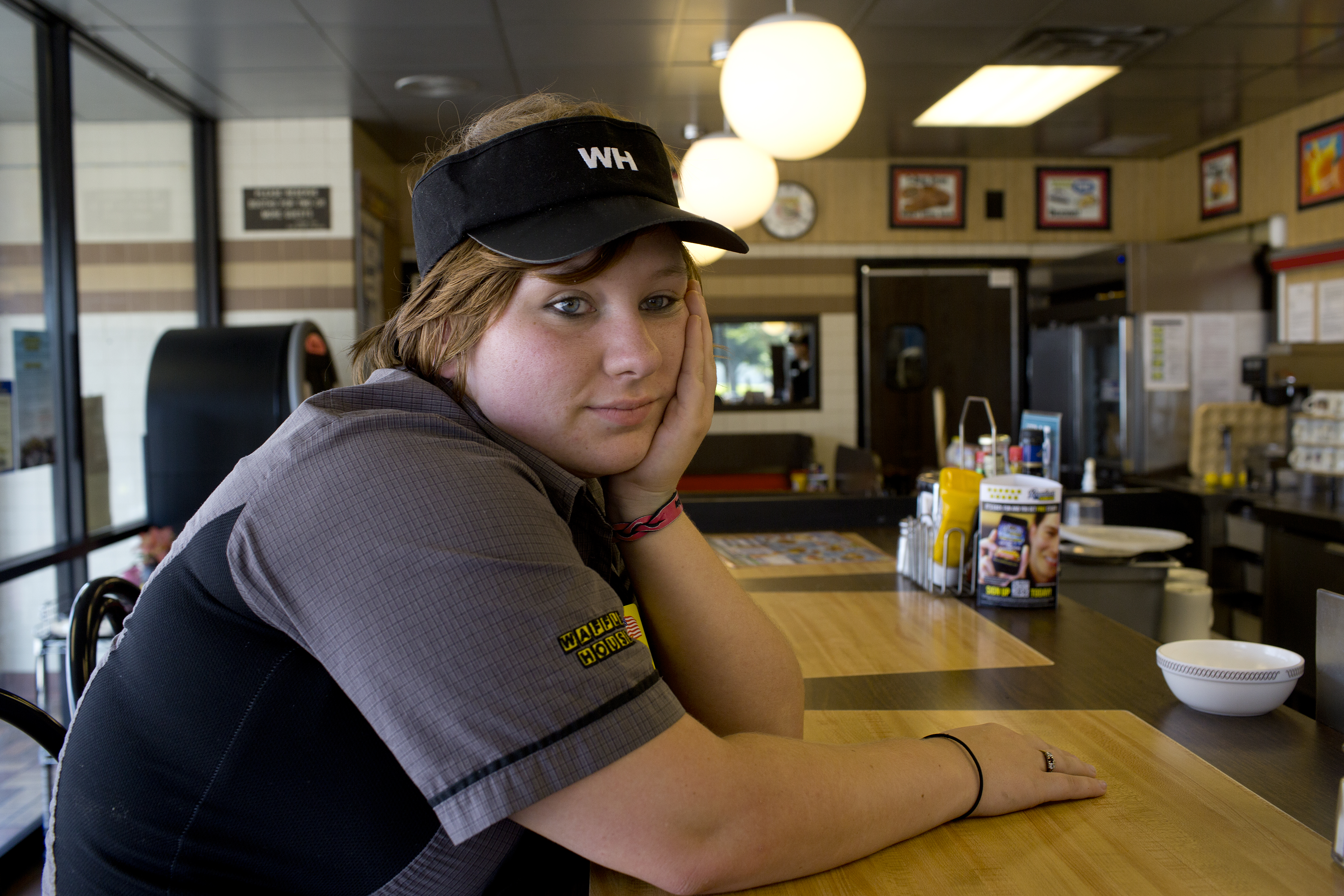
A waitress at Waffle House had just finished her shift and was waiting for a ride home. “I don’t see how anyone can vote for Trump,” she said, “but to vote for Hillary—that is bringing Nixon back.” I took a single frame and the manager came over. “I’m sorry, sir,” he said, “corporate policy says no recording equipment of any kind is allowed in Waffle House.”
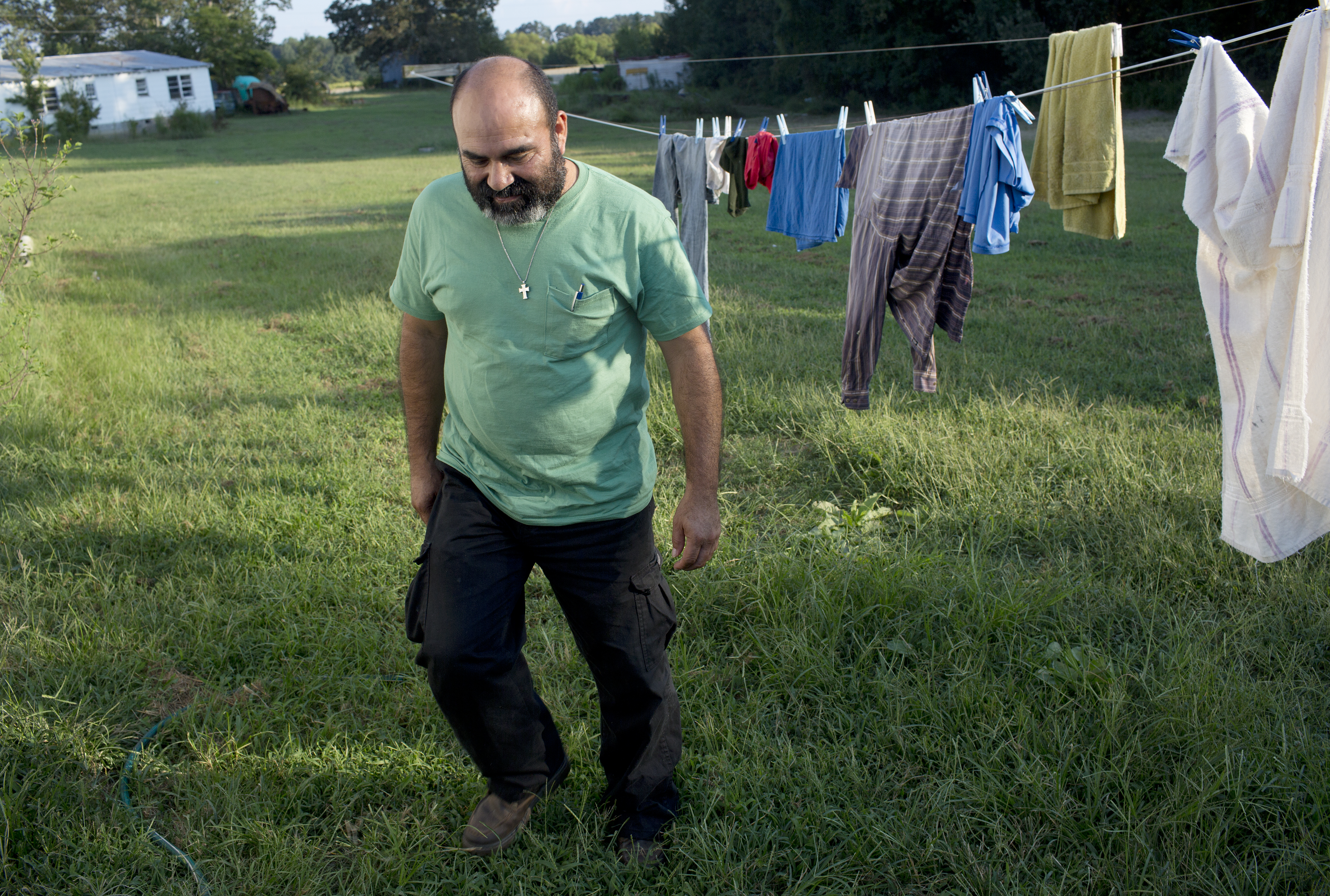
Leonardo Galven is an outreach worker for the North Carolina Farmworkers Project, which provides healthcare services to migrant workers. He came to America in 1992 from Mexico and spent ten years working in the tobacco fields. “Right now there is something wrong with this country,” he said. “I’m really worried. Why is the focus on us Latinos? It’s our hands that bring all the food to the table. We contribute so much to the economy. But not enough of us vote, and I don’t understand why. We can decide so much more than we do.”
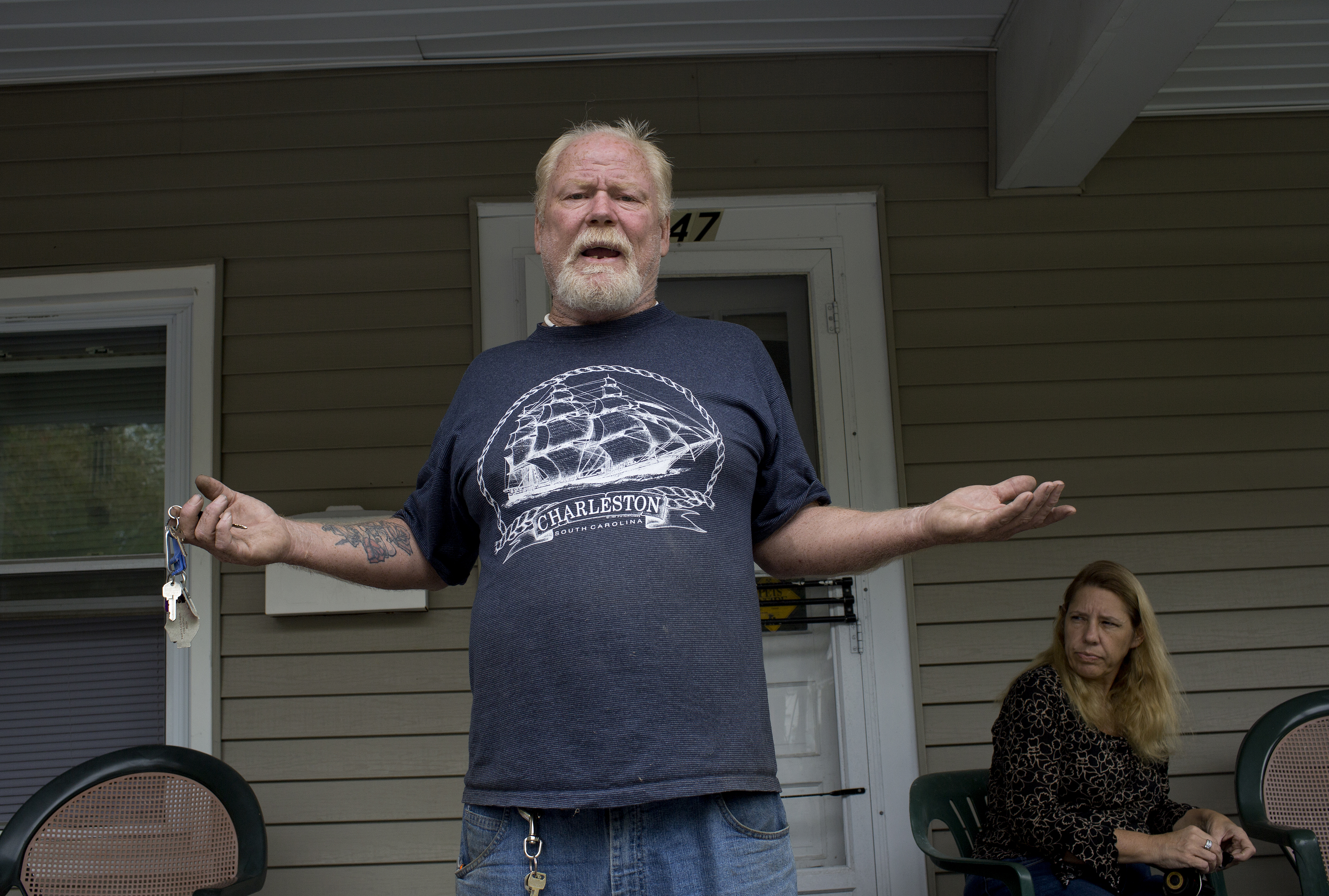
Neil, who declined to give his last name, was having a lawn sale on his front yard in a neighborhood in Norfolk, Virginia, where a lot of retired military live. “Trump is going to win,” he said. “Ain’t no doubt in my mind. He’s going to get everyone’s jobs back. The economy is pitiful. The US should not be like this. I just don’t understand this country anymore.”
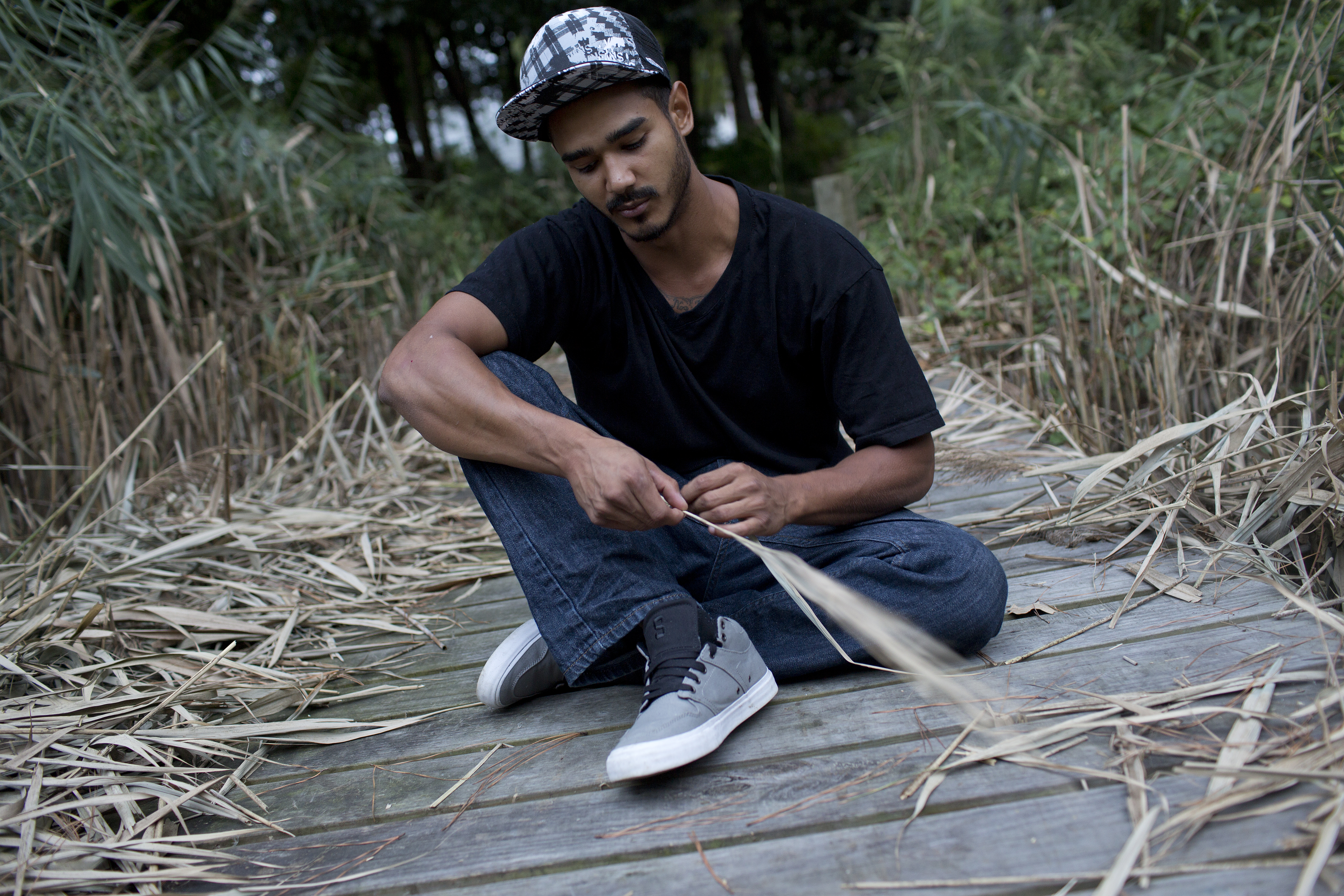
Garth Miller of Norfolk, Virginia, is twenty-three and spent the last five years locked up for a violent felony. “Here in Virginia, I cannot vote,” he said. “They have left me voiceless. It’s frustrating to me, infuriating even. I’ve served my time, and still I’m looked upon as subhuman. My dad was a Republican, but Trump is just not prepared for the job. I would have voted for Bernie. But do you know how it feels to be asked if I’m registered to vote? Because I have things to say. This is important to me, what happens in my country.”
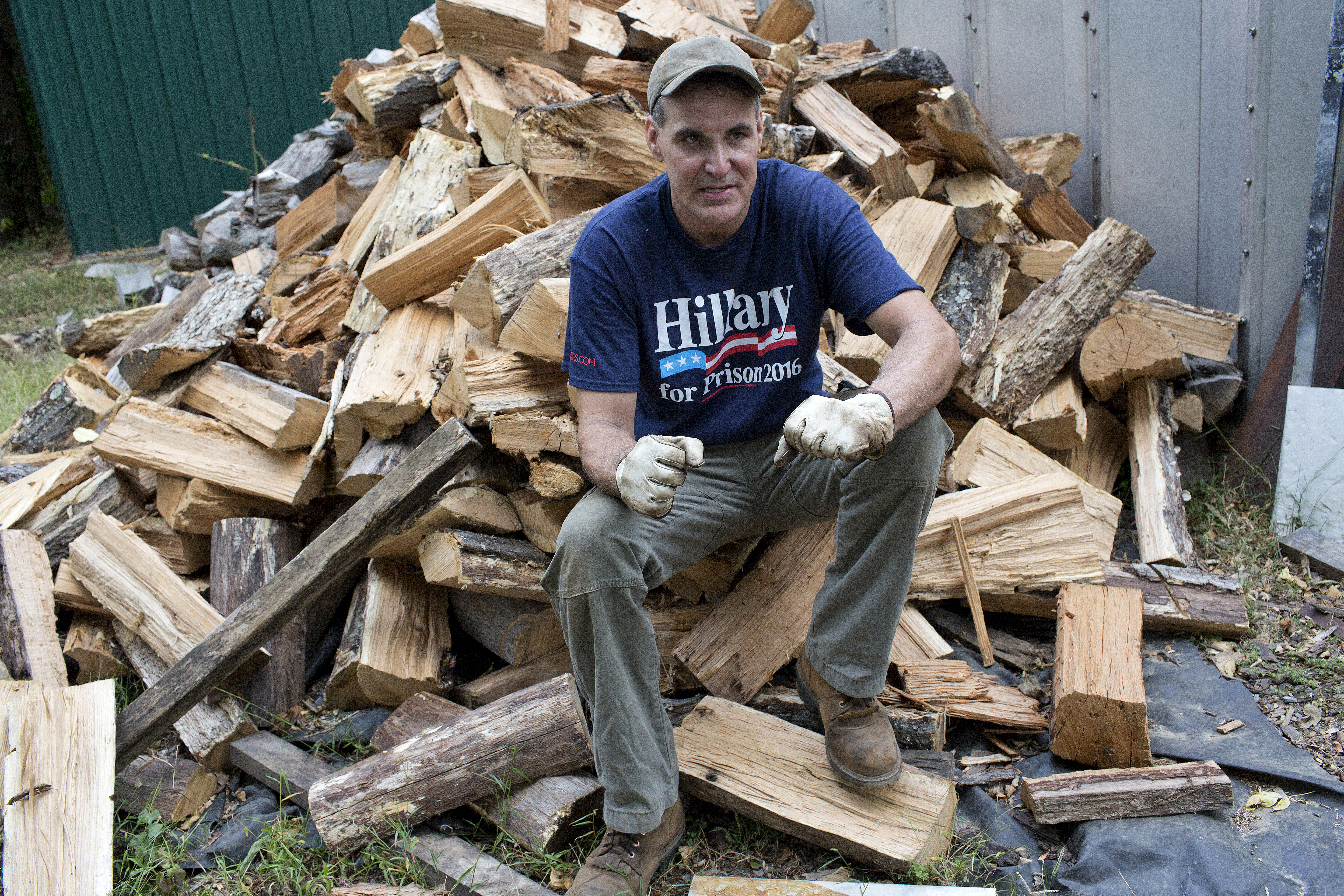
Terry Porter lives on the edge of the Antietam battlefield in Sharpsburg, Maryland, and flies a Confederate flag at the entrance to his home. In 2012, after a neighbor reported that he had unauthorized weapons stored in the survival bunker he built under his house, Terry was on the receiving end of what he said “was the largest SWAT raid in US history.” He has a lot to say about politics. “For starters,” he said, “five of the most powerful people in the Obama administration are Muslims. This election is about whether we lose the country or not. Clinton is running on restricting the Second Amendment, shutting down the energy industry, bringing in tens of thousands of illegal immigrants. Trump is putting his life on the line because he is a patriot. His life is in danger. I don’t mean from Hillary, but from the people who really run things, the New World Order. If things are not fixed, Donald Trump, without a doubt, will win. But who knows? They are already bringing in United Nations ‘observers’ to ‘monitor’ the election.”
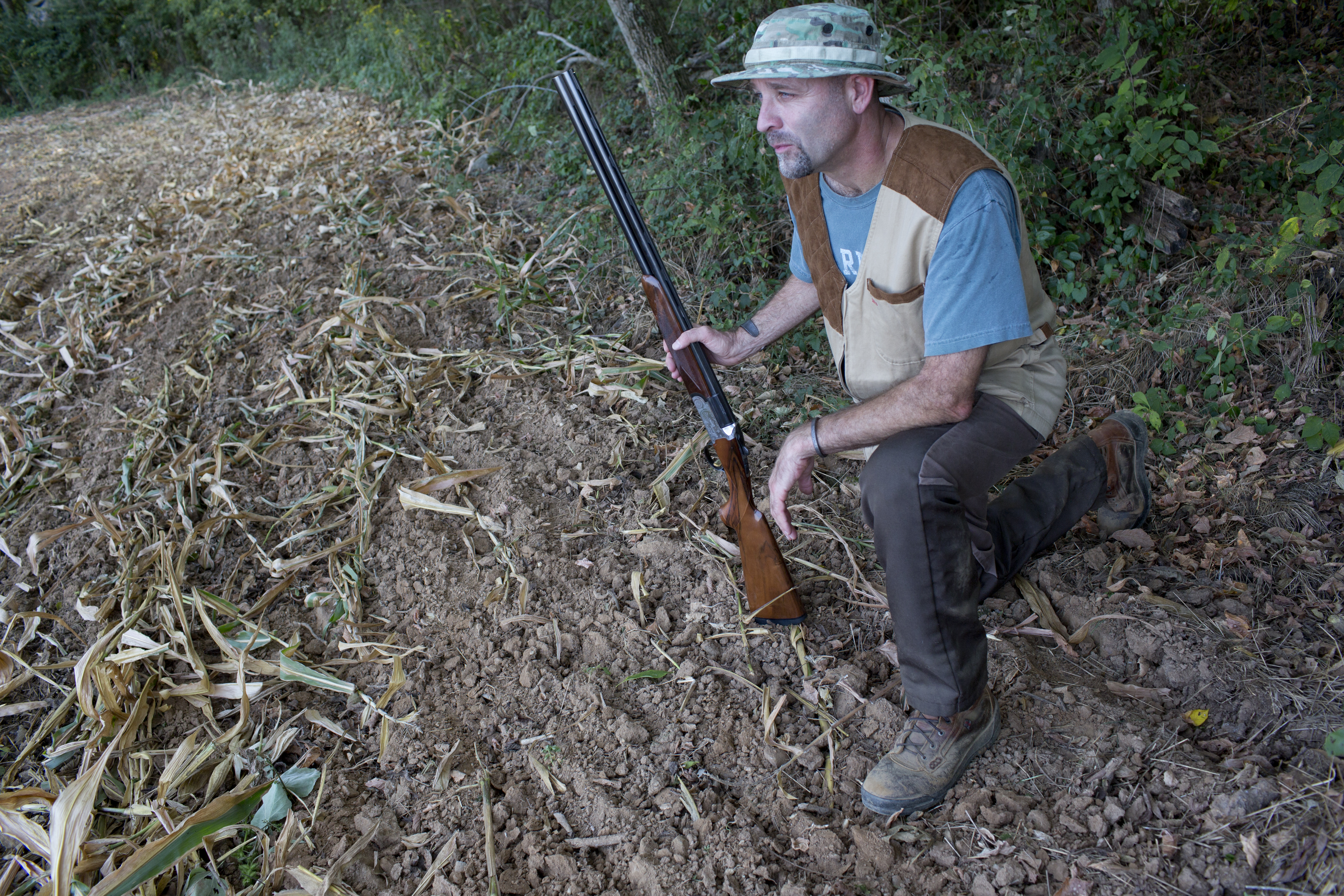
Richard Leonard is a home inspector who rides horses or hunts every chance he gets. “I’ve always voted Republican,” he said, “but I’m not voting for Trump. I’m a positive person, with positive expectations. As a country, we are already great. Am I better off than I was eight years ago? Yes, without a doubt. I consider myself an independent voter. I’m willing to really listen to all the candidates, see what they have to say, but righteousness is what creates wars.”
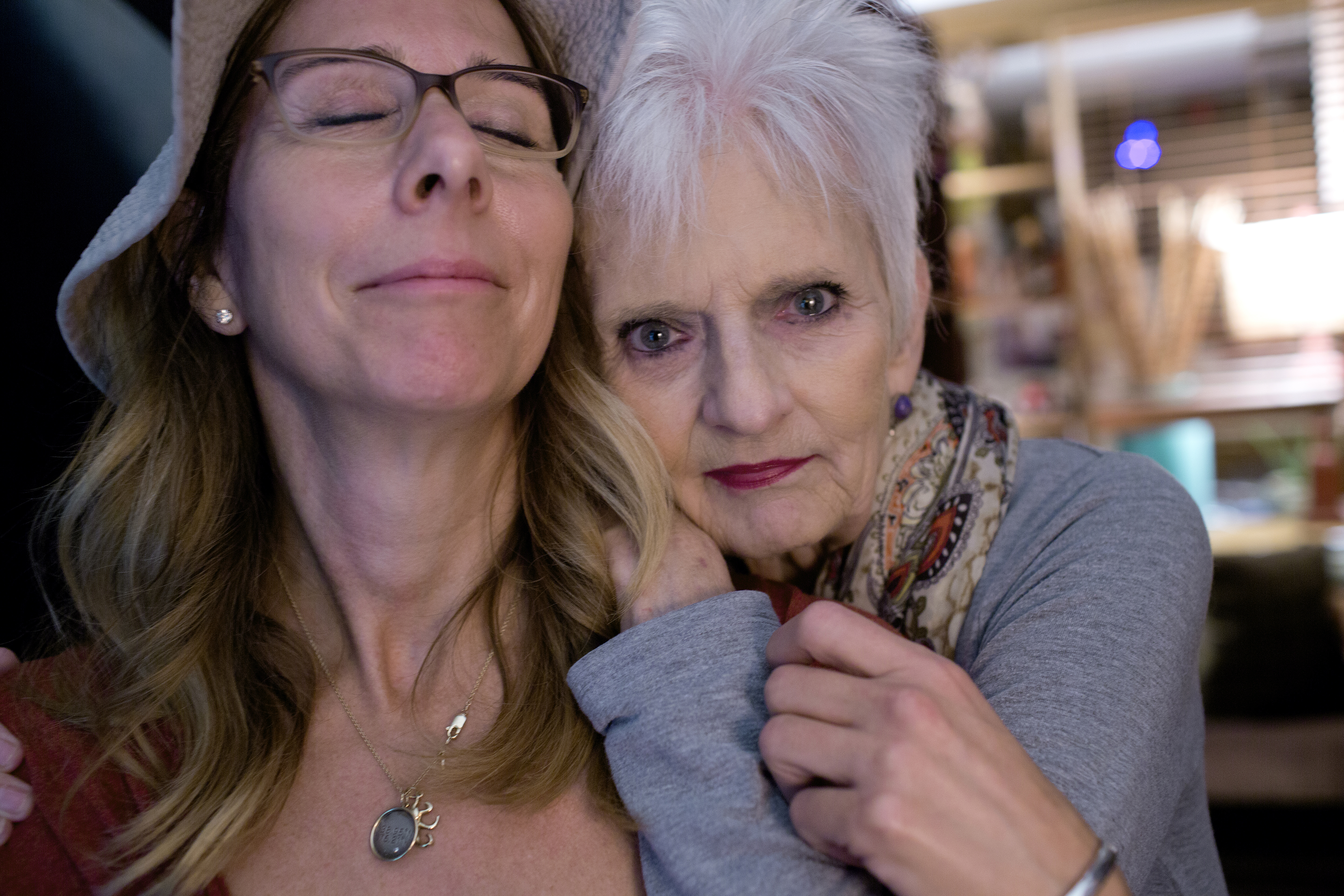
Geraldine Lloyd (right), pictured here in her home with her daughter Erin (left), describes herself as an artist, author, feminist, cancer survivor, and anti-tobacco activist. “I’m looking at the big picture,” she said. “Hillary has to become president in order to sustain our democracy. I’m of the same generation as her and have watched her career over many years. I’ve always admired her for speaking up and fighting to make positive changes as a woman during a time when it was not popular to do so. She is a strong woman who has set out to do the right thing. This is a gender war we are living through right now. That Grand Old Party just cannot give up the idea of having a good cigar and coming home to a good meal waiting for them.”
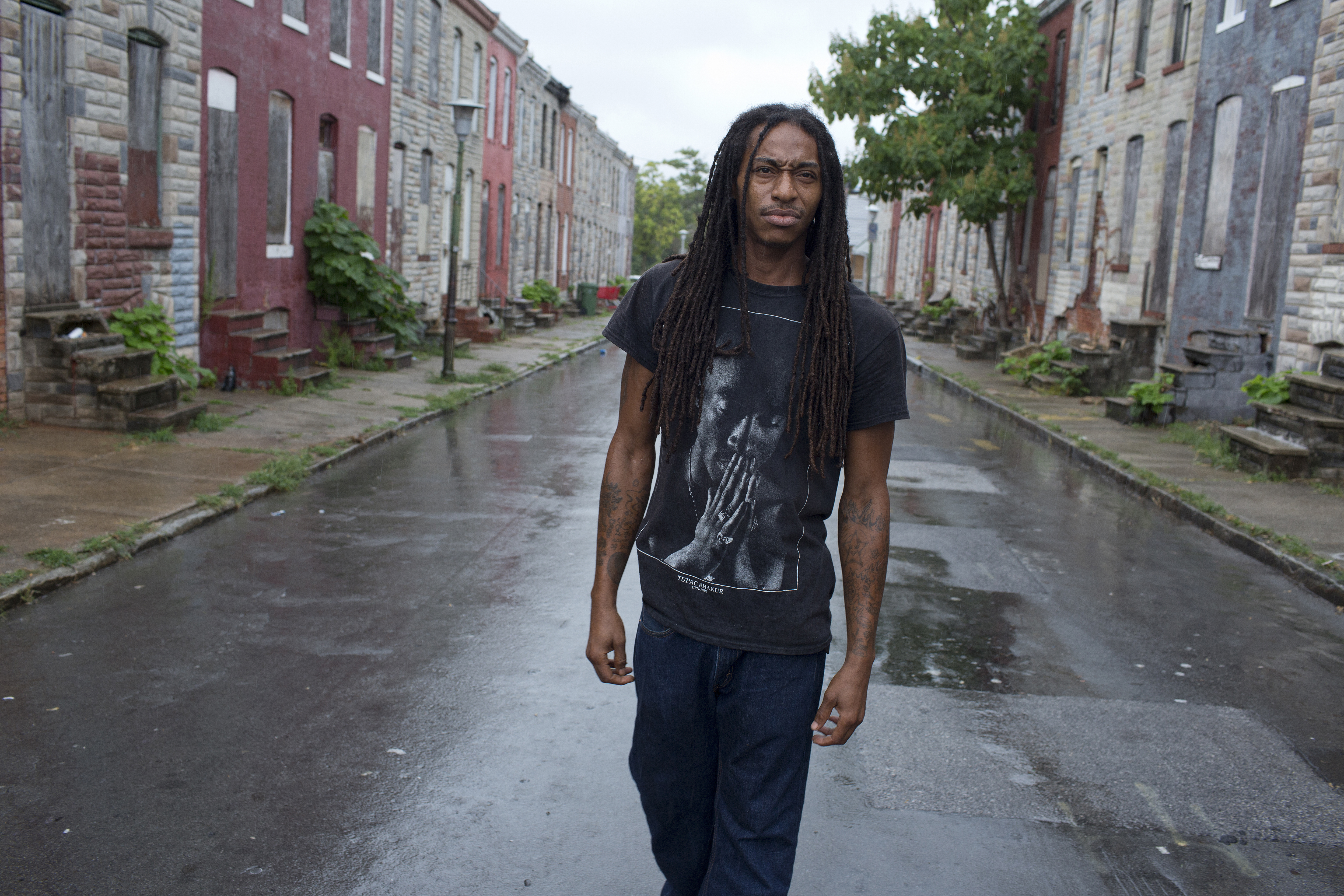
Donald Curby lives on a block in East Baltimore that has been mostly abandoned. “Take a look around,” he said. “This is my America—poverty, decay. It’s a dark place. This is not what the world thinks America is all about. I’m not going to waste my time with Hillary Clinton. Most of the laws out here that have negatively affected a lot of black families—housing, medical, public assistance, a 900 percent increase in the incarceration rate—all happened under the Clintons. I’m willing to take my chances with Trump. What is so great with the way things are?”
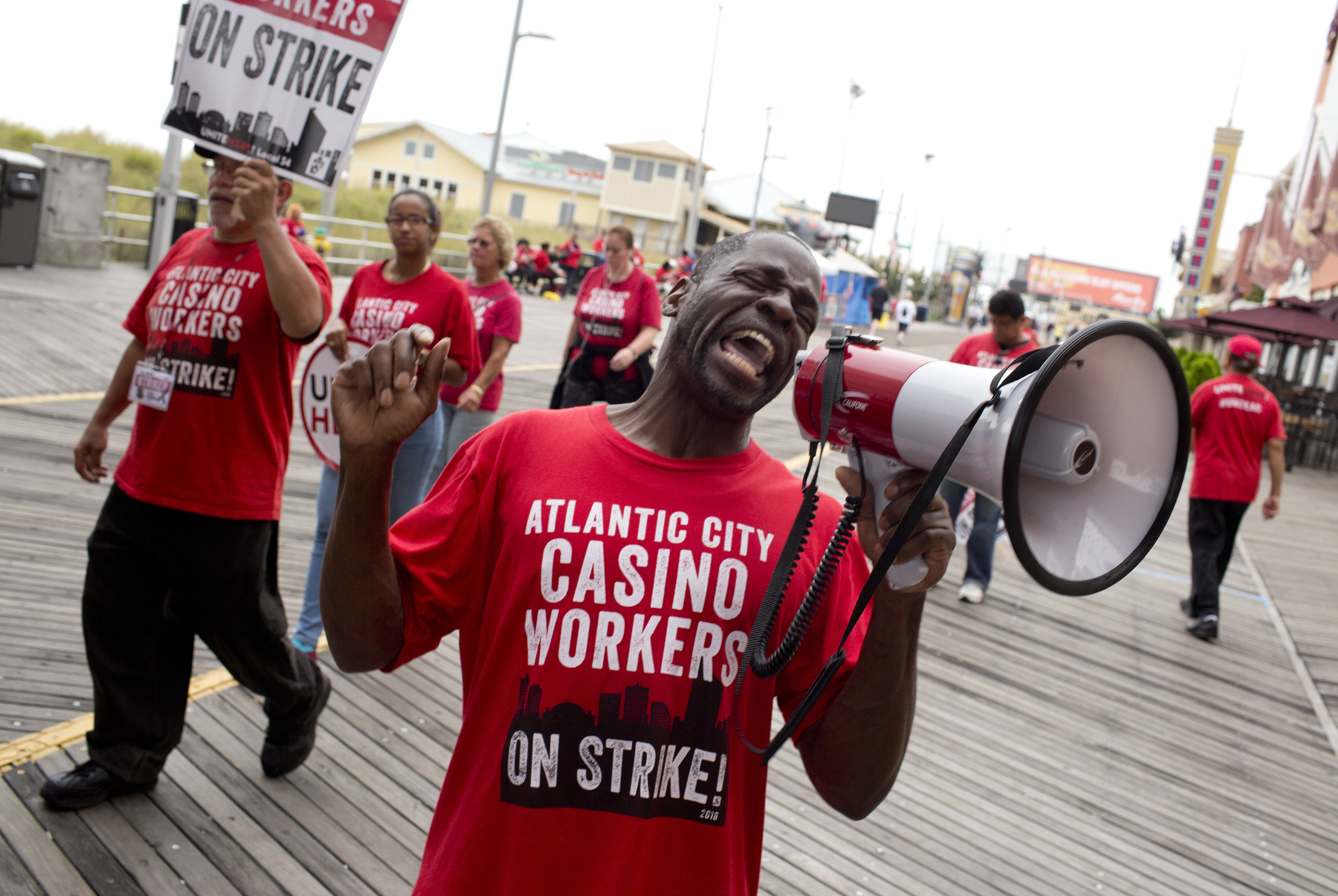
Unite Here! union members walk a picket line on the Atlantic City Boardwalk in front of the Trump Taj Mahal casino. The hotel and casino is no longer owned by Donald Trump, and many of the strikers were divided over who they support in the upcoming election, with several telling me that things were run well under Trump and they were going to vote for him. Jerome Wright, who began work there twenty-six years ago, when the casino first opened, felt differently. “Trump betrayed us, just like Icahn,” he said. “When Trump owned this place, he didn’t do anything for it. It’s true it was nicer than it is now, but he just picked up and left, and now his friend has completely abandoned it. All we want is a fair contract, for our families. We’ve been two years without any health insurance, zero benefits. Trump is all about supporting himself, and his money, not the working people.”

